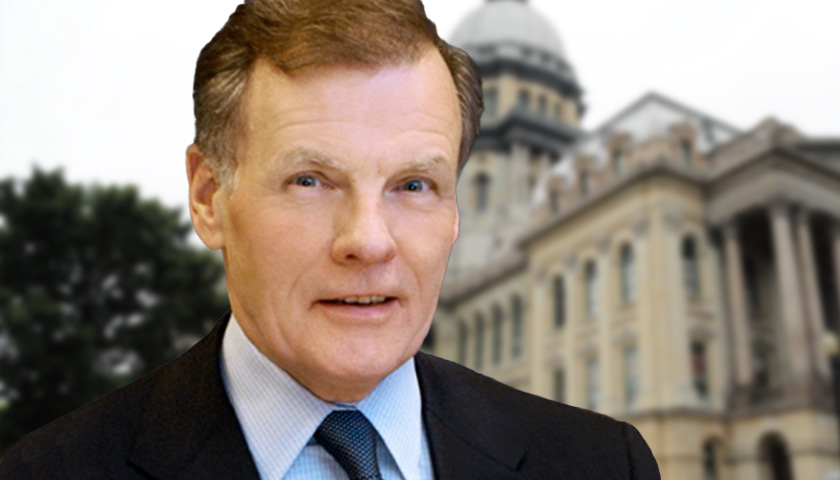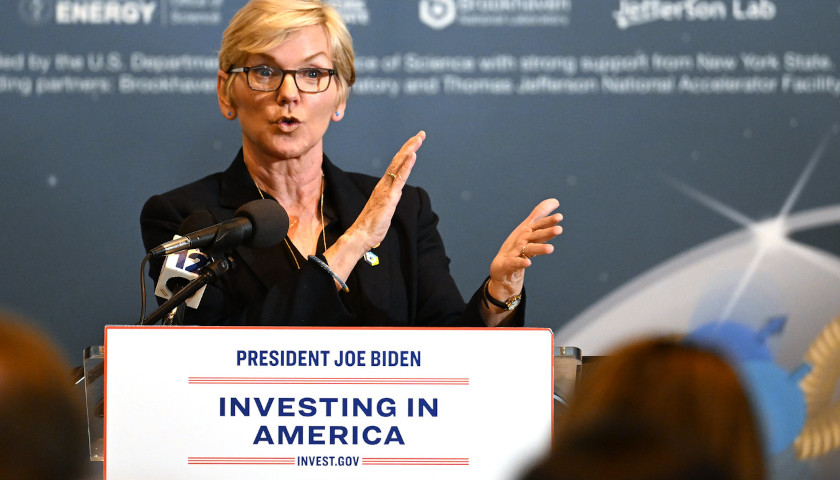by Brett Rowland and Greg Bishop
Taxpayers could face a costly and lengthy path to justice as federal prosecutors work to convict one of the state’s most powerful politicians on corruption charges.
Prosecutors alleged in a 22-count indictment last week that former Illinois House Speaker Michael Madigan, D-Chicago, used his elected office and political operations as part of a years-long criminal enterprise for personal gain. In addition to the criminal charges, the indictment also seeks the forfeiture of $2.8 million in alleged illegal profits from Madigan and his confidante, former state lawmaker and ComEd lobbyist Michael McClain. If convicted of the most serious charge, Madigan could face up to 20 years in prison.
The criminal proceedings are just getting underway. Madigan is set to be arraigned March 9. Already, five attorneys from Katten Muchin Rosenman LLP, a Chicago-based law firm with more than 700 attorneys across the world, have filed appearances on Madigan’s behalf.
After it became clear his fellow Democrats wouldn’t support him as speaker for another term, Madigan resigned from the Chicago legislative seat he held for five decades on Feb. 18, 2021. The next day, his campaign fund, Friends of Michael J Madigan, spent $2 million with Katten Muchin Rosenman LLP, according to campaign finance records.
Sheldon Zenner will serve as Madigan’s lead attorney, according to court records. Zenner spent seven years as an assistant U.S. attorney in Chicago.
“Having a prosecutorial background gives Sheldon critical insights into, and the ability to anticipate, the government’s strategic decision-making,” according to Zenner’s biography on the firm’s website. “It also informs Sheldon’s approach as a defense lawyer. Although never anything short of zealous, he favors a search for common ground and reasonableness, whenever possible, over unproductive displays of aggression.”
Northern District of Illinois U.S. Attorney John Lausch said he is confident in the case his office built against Madigan and McClain.
“We use a whole host of investigative tools, those aren’t spelled out specifically in the indictment, but what you do have is words that are used in conversations, you do have words that are used in documents or in emails that are spelled out throughout that indictment,” he said. “And that’s the core of our evidence in this case.”
Prosecutors have cooperation from a political insider, former Chicago Ald. Danny Solis, who recorded conversations with Madigan, according to court records. In 2020, federal prosecutors and Exelon subsidiary ComEd reached a deferred prosecution agreement. As part of the agreement, the utility admitted it paid $1.3 million in jobs and contracts to associates of Madigan over nine years to influence the former House speaker. ComEd agreed to pay a $200 million fine. A former ComEd official, Fidel Marquez, pleaded guilty to bribery charges in September 2020.
Given the breadth and complexity of the allegations, the case will be challenging, said David Parker, assistant professor at the Graham School of Management at Saint Xavier University.
“You can’t take any of them for granted,” he said. “You hope to, but I don’t think you’re going to get ‘guilty’ on all 22 counts, so it’s kind of like let’s bring every single one we can and hope we’ll get all of them, but maybe the majority of them. I don’t think it is safe to say any of them are a given.”
Madigan has denied wrongdoing.
“I was never involved in any criminal activity,” Madigan said in a statement Wednesday. “The government is attempting to criminalize a routine constituent service: job recommendations. That is not illegal, and these other charges are equally unfounded.”
The case against Madigan will depend on what prosecutors are able to bring to court, Parker said.
“If it comes out that basically, people had no-show jobs, I don’t think that’s going to go over too well,” he said. “If there’s no work product, if they’re not really qualified. I think it’s going to be a hard sell to a jury that this is nothing more than a recommendation.”
Madigan has long been seen as deliberate and careful.
“He’s a very shrewd individual and he’s got a good legal team,” Parker said.
However, cooperation from Solis and Marquez’s guilty plea could benefit prosecutors.
“I think that’s a huge benefit to the prosecution,” Parker said. “If you can get him on the witness stand, depending on how believable they are, it could have a huge impact. It also puts a little bit of pressure on Madigan and his team, it’s like well, OK, what are they going to say? Are these individuals holding the smoking gun?”
In light of how much money Madigan has already spent and the more than $10.5 million in campaign cash at his disposal, the legal proceedings could take years.
“It could be lengthy,” Parker said. “It’s not going to be quick.”
Parker said a trial is by no means guaranteed. Prosecutors and defense attorneys could reach a plea agreement that would scuttle the need for a public trial, he said.
Before he withdrew his bid to retain his role as House Speaker in early 2021, Madigan had controlled not only how and what legislation moved through the state’s lower chamber, but also the purse strings for his party as chairman of the Democratic Party of Illinois. Those dual roles made him the state’s most powerful and influential politician.
“Some people probably think this is the tip of the iceberg,” Parker said. “If you’ve got a healthy root system with a toxic plant, what are you left with?”
– – –
Brett Rowland has worked as a reporter in newsrooms in Illinois and Wisconsin. He most recently served as news editor of the Northwest Herald in Crystal Lake, Illinois. He previously held the same position at the Daily Chronicle in DeKalb. Greg Bishop reports on Illinois government and other issues for The Center Square. Bishop has years of award-winning broadcast experience and hosts the WMAY Morning Newsfeed out of Springfield.
Photo “Michael Madigan” by Illinois House Democrats. Background Photo “Illinois State Capitol” by Meagan Davis. CC BY-SA 3.0.





